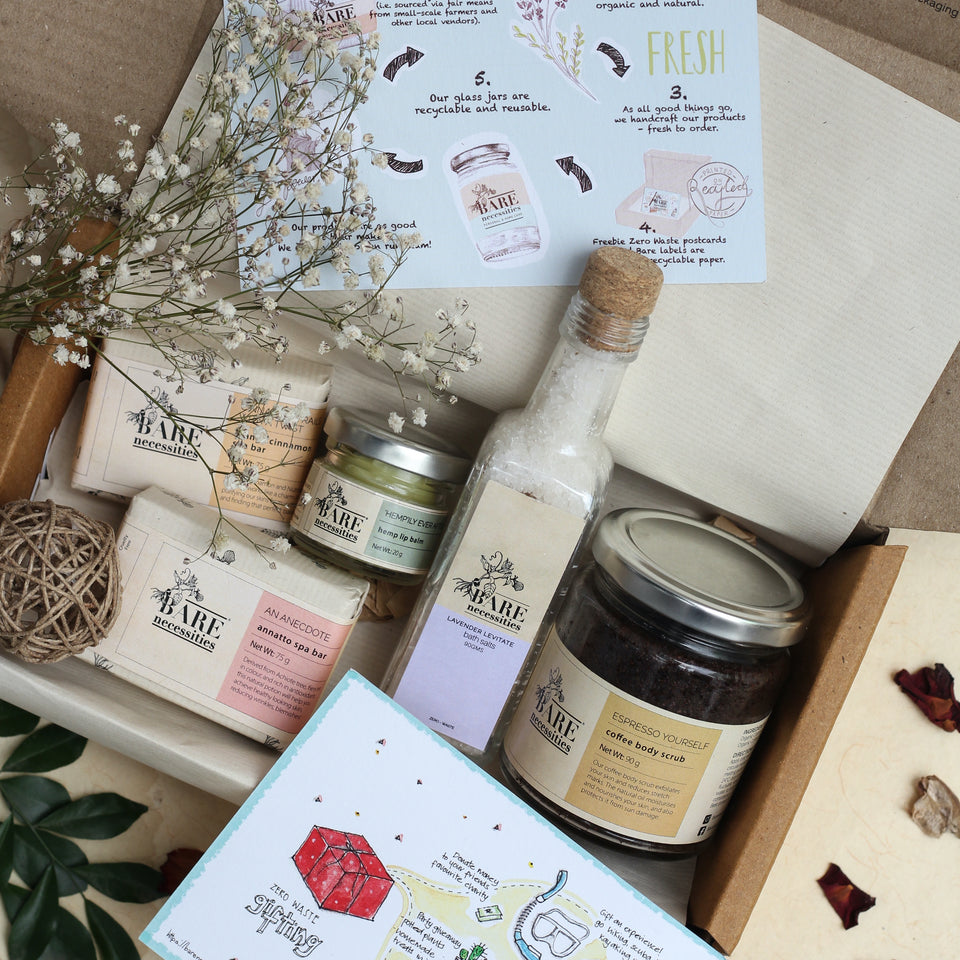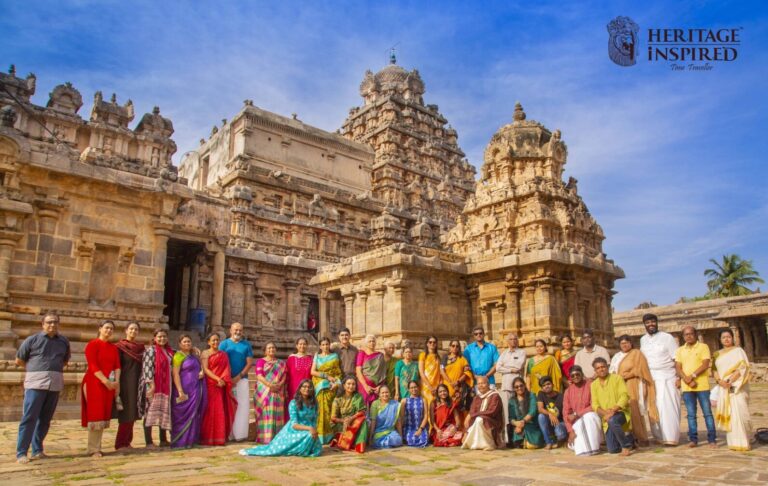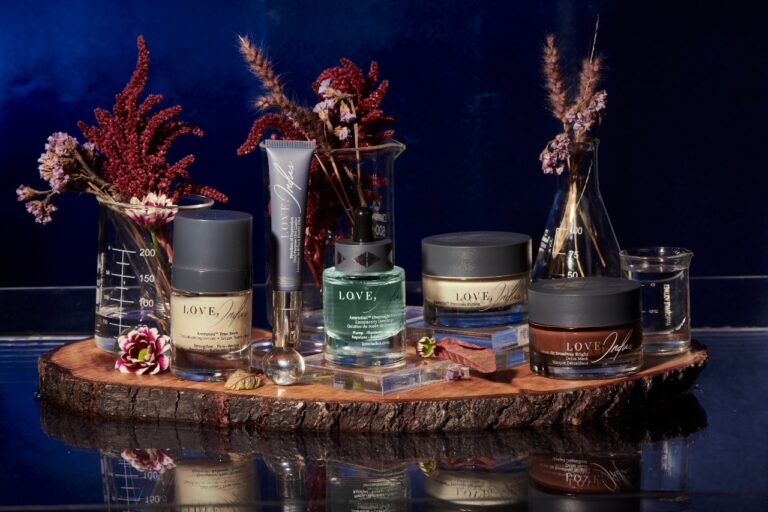Bare Necessities aims to produce essential everyday products that do not contribute to the waste epidemic. In our previous conversation with them on our blog, we highlighted how Bare Necessities seeks to change the narrative on waste in India by producing zero-waste products.
By hosting educational workshops, talks, and events, they aim to demonstrate that any individual can positively impact their community by inspiring others to reduce waste consciously. They also adapted to the ways of the COVID pandemic by additionally launching corporate workshops and online sustainability courses, such as Zero Waste in 30.
Bare Necessities was the winner of the NICE Aarohana Business Plan Competition (Growth Stage). They also participated in the first NICE Angels Investor Meet concluded recently.
In conversation with Sahar Mansoor, Founder of Bare Necessities, TEDx speaker, and Elle’s Top India Trailblazers 2018, we discover Bare Necessities’ initiatives to build the ecosystem towards a circular economy. A circular economy is an economic system of closed loops in which raw materials, components and products lose their value as little as possible.
Read on to find out how NICE entrepreneurs in the NICE community can launch initiatives and foster partnerships that further their brands’ message.
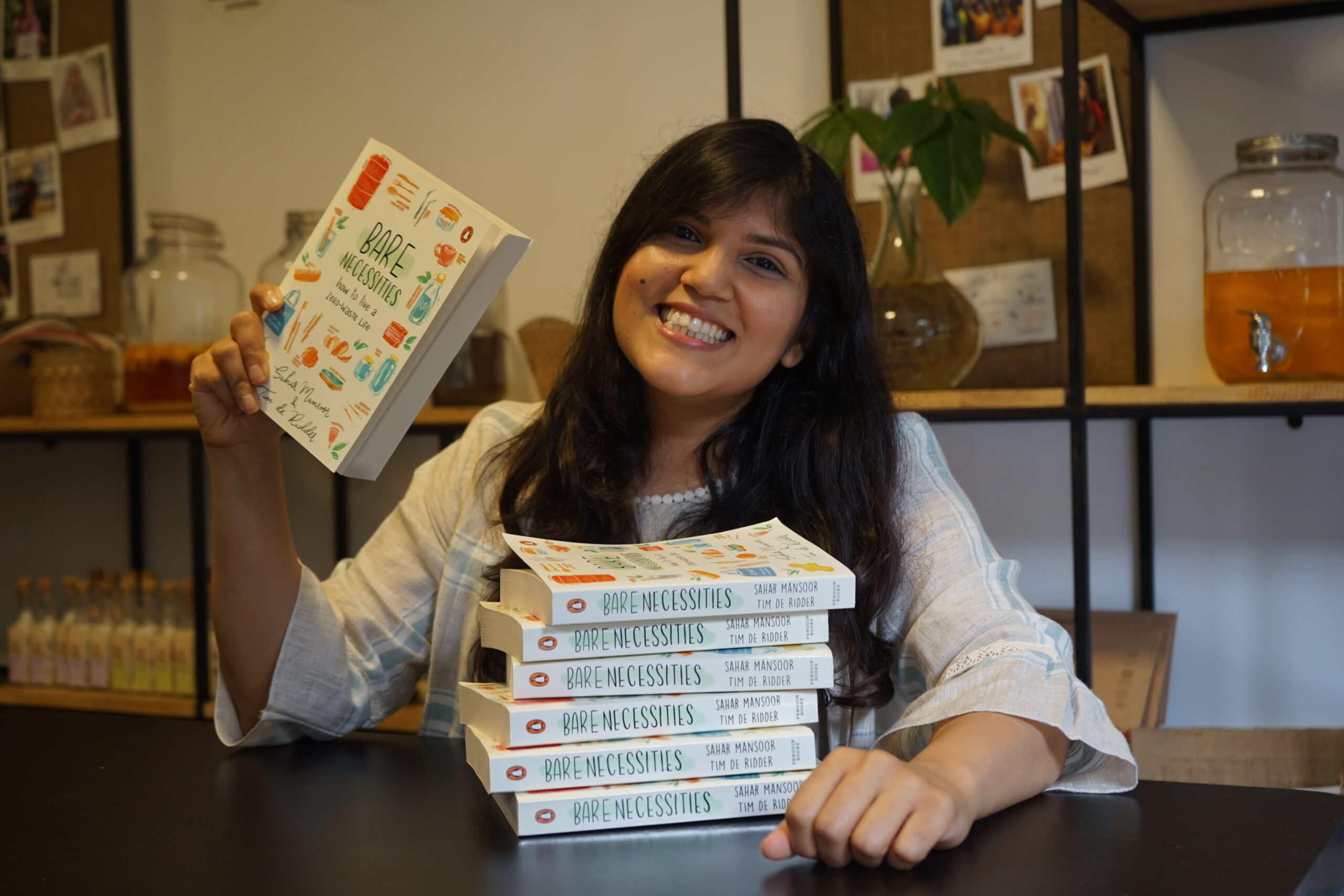
Marrying the Old and the New – Attracting our Consumer Demographic
We see a growth in the demographic of our consumer base. The recognition given to sustainable businesses within various industries has helped raise awareness about the importance of conscious consumption. Be it the ‘Make In India’ campaign or being titled Google’s ‘Inspiring Indian of the Year,’ support within this space has helped us introduce zero waste to India – a relatively new concept in the Indian and global market.
When we launched, our target market was young mothers, as they tend to be knowledgeable and aware of the ingredients in their personal and home care products. But this definition has rapidly expanded to Tier 1 and Tier 2 cities – and is not limited to only women and young moms but also millennials. We see a trend in millennials aligning their consumer choices with their values. We also see many older women who are nostalgic about the comeback of products like Multani Mitti that they frequently used in the past.
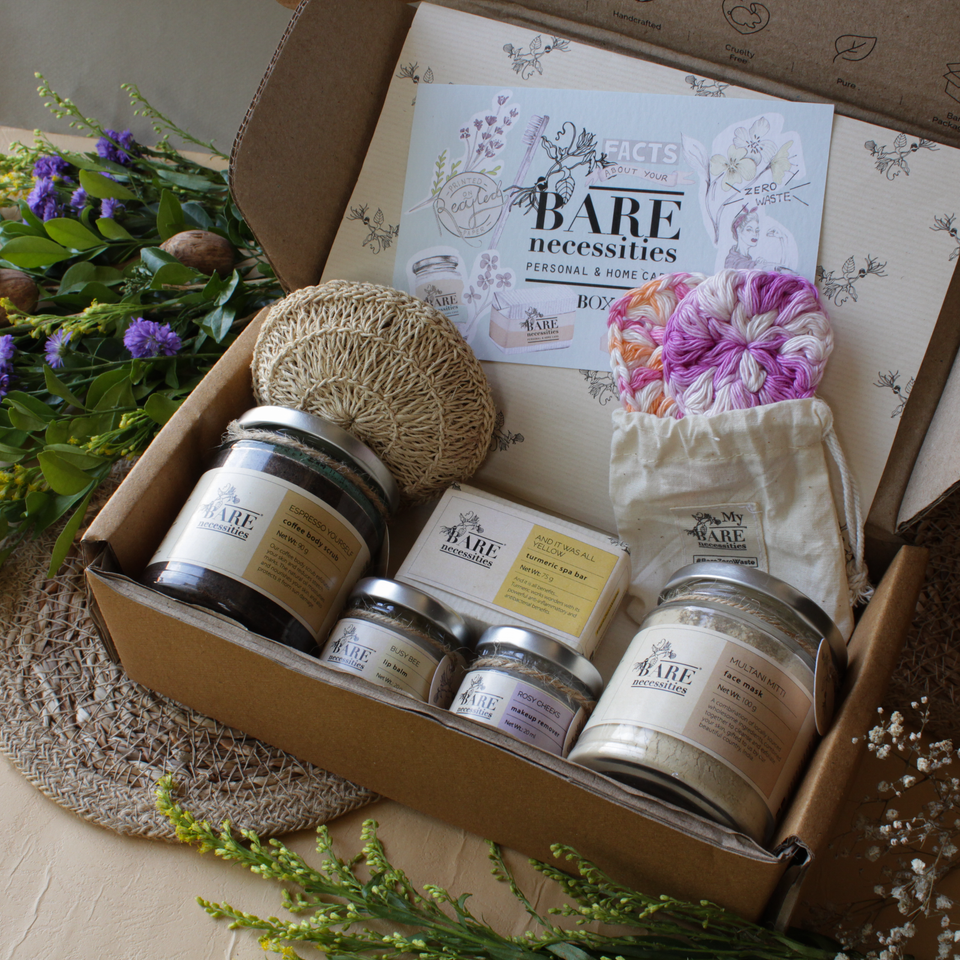
In this way, Bare Necessities seeks to capture the essence of India – constantly in a state of transformation yet timeless. We appeal to the global market because we celebrate the beauty and richness of Indian ingredients while giving a global and local feel together.
In this journey, witnessing consumer response and receiving customer feedback is undoubtedly the most gratifying experience. It has inspired us to pursue and achieve the brand’s vision.
Beyond the Simple Bare Necessities – Launching Partnerships and Collaborations
We’ve done a lot of meaningful partnerships and collaborations with other like-minded social businesses and brands that we deeply respect. All of our products are packaged in recyclable, reusable, and biodegradable packaging. We rely on ethical sourcing of raw materials from local farmers and vendors and emphasize the employment of women. We aim to positively impact waste management streams, consumer and community health, and the consumer’s wallet.
We launched a book around sustainability with Penguin titled How to Live a Zero-Waste Life. We collaborated with Champaca Books, an independent bookstore, to do a virtual launch.
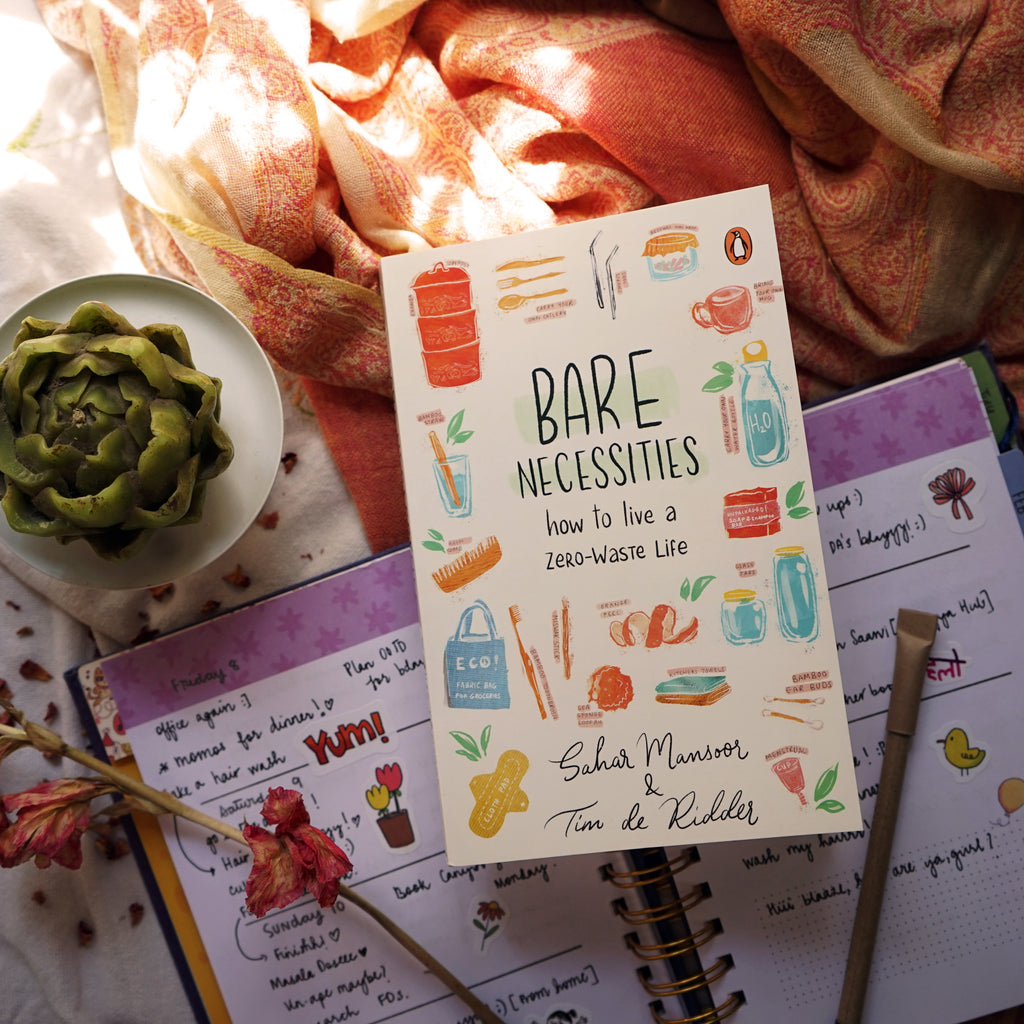
We also work with Restore to build a refilling system and maintain the circular economy promoted by Bare Necessities. Once the customers send the bottle back to us, they are refilled and dispatched once more.
We are constantly collaborating with schools, cafes, and ethical brands we admire. We worked with We are Sui, a slow fashion, sustainable fashion brand, to create a multi-compartment tote bag. It was made with up-cycled waste cloth and designed as a grocery bag. We partnered this initiative with Copper and Cloves, a plant-based cafe in Bangalore, to help advocate for it. We also partnered with Royal Enfield to create Zero-Waste Travel Kits for bikers to use on their rides.
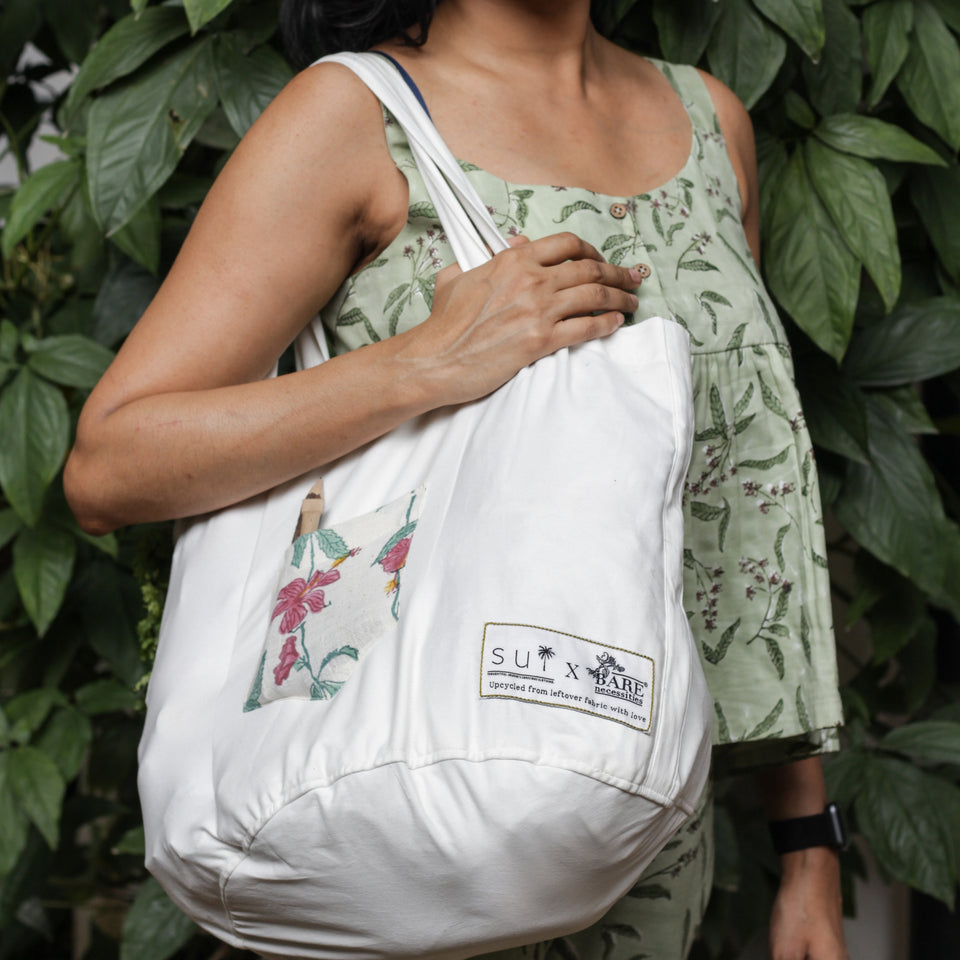
We created a product range in a co-branded collaboration with Mason and Co, a chocolate company. We source cocoa butter and cocoa powder from their company and then transform them into lip balm and dry shampoo products.
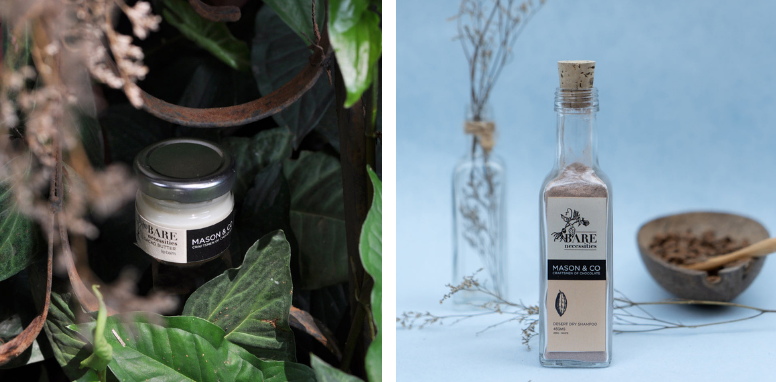
We aim to collaborate with people and brands who resonate with our vibe and believe in our values. We worked with a botanical illustrator, Nirupa Rao, who helped with our packaging illustration and design and designed our BARE logo.
We did an Instagram live with Sony BBC Earth, hosted by Tara Sharma, to promote adopting a Zero-Waste Lifestyle.
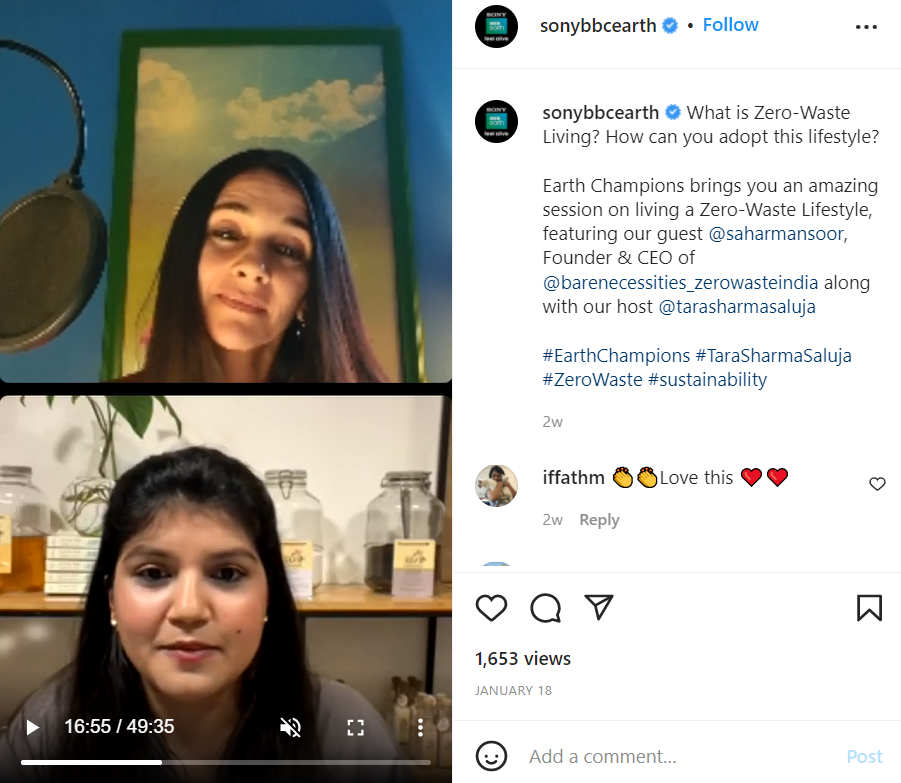
We have Bare-ly Just Begun – Celebrating Milestones and the Road Ahead
We have 80k followers on Instagram at the moment and 1 lakh through all social media platforms. In the past year, we’ve come up with new products, online courses, and added ten new members to our team. We are expanding our consulting services to include waste audits, workshops, and talks, among other areas of focus.

Currently, we run several initiatives that are social impact-driven. From working with local coconut vendors to replace plastic straws to giving the customers the ability to recycle and refill their containers, we aim to create a platform for people to share and build a community around zero waste.
Bare Necessities seeks to become an interdisciplinary hub, a home for product designers to design products with a cradle to cradle philosophy, a place for policy analysts to work with local government on policy recommendations to manage our waste better, to reduce our waste.
Bare Necessities has been growing through meaningful collaborations and initiatives that are reflective of their brand’s journey and message. NICEorg wishes them the best of luck in their journey ahead.
In order to find out how a brand in the beauty sector shows their brand’s message via social media, check out our article on Love, Indus. Stay tuned to find our next article, to find out how to measure ROI on your brand’s social media PR campaigns.
If your cultural enterprise is in any of our five focus sectors and you would be interested in being featured, write to us at namaste@niceorg.in
